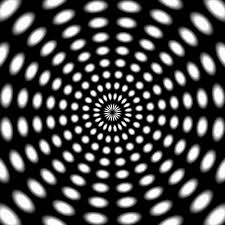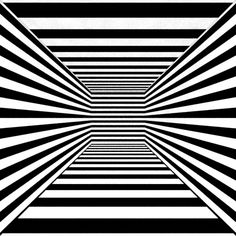|
LITR 4368 Literature of the Future |
Sample answers
for Essay 1:
|
 |
Kimberly Berlin
Eco-Aliens
Before taking this class, I thought the realm of
science fiction was limited to aliens and time/space travel. Upon learning about
the various scenarios of the future, I realized that it actually encompassed
projections of utopia/dystopia and low-tech futures as well. I was already
familiar with those categories, but I understood them to be under the umbrella
of urban fantasy. After reading texts like
Chocco,
The Onion and I,
The Poplar Street Study, and
They’re Made Out of Meat, I really
grew to enjoy low-tech/ecotopia and alien contact short stories.
Ecotopia, the most satisfying of these particular
scenarios, is defined on the terms page as an Ecological Utopia -- that is, “a
community whose collective social health imitates nature’s interconnectivity.” A
vanilla Utopia is some kind of socialist, planned community, with strict rules
that ensure the health and general well-being of the citizens. Ecotopia,
however, adds on the idea of harmony with nature, especially in light of the
impending threat of irreversible climate change. Ernest Callenbach (author of
the book that coined the term “ecotopia” in the first place) wrote his short
story Chocco as a warning to readers
of the consequences of unchecked, capitalistic growth and rebellion from the
laws of the natural world. The two young men debating for the position of the
next Memory Keeper had to recount and speculate about what brought about the
technological downfall of their ancestors, known to them as the Machine People.
The appeal of this short story lies in the fact that we know our planet cannot
sustain the continued strain of population growth, pollution, and countless
other things. Well, more accurately, our planet will continue to change and
develop and live out its life orbiting the sun, but we will likely not survive
the sabotage of our one and only habitat. Mother Earth will keep spinning with
or without us. Chocco, while slightly
discouraging, gives us a little hope that maybe we might be able to fix our
mistakes before time runs out and the damage becomes irreversible.
In a similar way,
The Onion and I, written by Thomas
Fox Averill, also warns against the unchecked technological development of the
21st century. With one hand, it reaches forward, grasping for the high-tech
future of cyberspace; with the other, it holds fast to the biological nostalgia
of low-tech reality. The course terms page lists the high-tech scenario
alongside concepts such as virtual reality, cyberpunk, hard science, and the
singularity, where the difference between man and machine become negligible. The
mother in The Onion and I strives
toward integrating her human mind into the cyberspace neighborhood, ever looking
for the next big virtual development. The father, however, was never satisfied
with the virtual world, ever nostalgic for the experience of real onions, just
like he used to grow before their family “moved” into cyberspace. The terms page
describes the style of the father’s low-tech mindset as science fiction that
“reacts against the bewildering and dehumanizing aspects of rapid technological
change represented by High-Tech or Cyberpunk scenarios.” The allure of high-tech
involves the cool factor and the buzz one gets from reading about fast-paced,
sleek technological development. Throw in a bit of technical jargon and it also
makes the reader feel like part of an elite, super-cool club of edgy smart-boys.
Low-tech, on the other hand, appeals to the fear that technology will one day
replace everything that it means to be human. Readers who enjoy low-tech, like
myself, seem to be nostalgic for the “good ol’ days” of playing in the dirt --
the raw and real experiences that make us truly human.
Both The Poplar
Street Study and They’re Made Out of
Meat fall into the alien contact scenario, which is self-explanatory. The
two different types of alien contact scenarios are aliens invading Earth and
humans fly around in spaceships to explore the galaxy and meet their celestial
neighbors. Terry Bisson’s short story,
They’re Made Out of Meat, features my favorite kind of alien story, where
the aliens look at humanity and decide what they consider weird or abnormal
about us. In traditional alien stories, the aliens are often either insectoid
terrorists or hypersexualized blue ladies who exist solely to be wooed by
Captain Kirk. This is the category The
Poplar Street Study falls into, since its perspective focuses on the humans
as captives of the multi-eyed alien observers. The appeal of traditional alien
contact involves the fear of the unknown or of some kind of invader, sometimes
bordering on the horror genre. The appeal of this alternate alien contact
scenario (which I talk about in my “Humans Are Space Orcs” research paper) is
much more lighthearted, tending toward either humans as the ugly invaders or as
an intergalactic, multicultural exchange of physical or psychological oddities
(such as hysterical strength and pack bonding). An example of the two would be
Alien (1979) versus any of the Star
Trek TV shows (except Discovery, which falls into the more traditional terrorist
alien category).
I really enjoyed these four stories.
Poplar Street Study reminded me of
the unethical human testing featured in the
Portal game series, while
The Onion and I made me want to sink
my teeth into an actual raw onion -- which I, in a right and sober mind, would
never do. These introspective and down-to-earth scenarios of ecotopia and
[alternative] alien contact are both inspiring and just plain fun to read.
High-tech scares me, because I fear losing my humanity is the worst thing that
could happen. That isn’t to say that I abstain from new technology out of fear
-- rather, I try to keep a respectful distance from the high price tags and
remember that technology is only a tool to help me solve problems.


